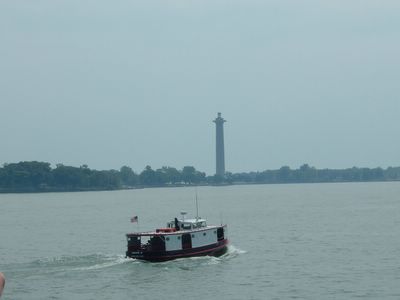Shorts
MARKET MANIPULATION/SHORT SALES
January 8, 2001 Nancy A. Condon NASD Regulation Bars John Fiero, Expels Fiero Brothers, Inc., and Imposes $1 Million Fine For Illegal Short Sales, Market Manipulation and Extortion Washington, D.C.
NASD Regulation, Inc., today announced that an NASD Regulation Hearing Panel barred John Fiero, expelled his firm, Fiero Brothers, Inc. and ordered a fine of $1 million for engaging in a fraudulent short selling, extortion and manipulation scheme. On Feb. 6, 1998, NASD Regulation filed a complaint against Fiero and other co-conspirators alleging that they colluded to drive down the price of 10 Nasdaq securities underwritten by now-defunct Hanover Sterling & Co. during January 1995, and February 1995, through illegal short selling of those securities. This "bear raid" scheme involved Fiero and others obtaining nearly 1 million shares, units and warrants from Hanover Sterling at below market prices through the use of threats and coercion to cover their illegally-created short positions.
Ultimately, the short selling scheme led to the failure of Hanover Sterling on Feb. 24, 1995, which was quickly followed by the collapse of its clearing firm, Adler, Coleman Clearing Corp., and the appointment of a Security Investors Protection Corporation trustee for Adler Coleman. In the decision, the Hearing Panel found that Fiero participated in an extortion scheme by purchasing $12.1 million of securities from Hanover, at prices $866,500 below the then-prevailing market price.
Fiero used these securities to cover his firm’s short positions, and resold the rest, primarily to other short sellers involved in the scheme. Hanover agreed to sell the discounted securities to Fiero in attempt to end the shorting of the stocks. The Hearing Panel also found that Fiero violated short selling rules from Jan. 20 through Feb 23, 1995 by failing to make the required affirmative determinations prior to engaging in short sales of the Hanover Sterling stocks. NASD rules restrict "naked" short sales, that is selling a stock short without ensuring that the stock can be borrowed or otherwise provided for by settlement date, also known as an affirmative determination. The Hearing Panel concluded that Fiero was not entitled to the market maker exemption from the affirmative determination rule during the time his firm was registered as a market maker because it was not engaged in bona fide market-making transactions. Fiero manipulated the market for the Hanover securities through his purchases and resale of the extorted stock and his illegal, naked short selling. Unless the matter is appealed to NASD Regulation National Adjudicatory Council (NAC), or called for review by the NAC, the Hearing Panel's decision becomes final after 45 days. The sanctions imposed by the Hearing Panel are not effective during this period. If the decision is appealed or called for review, the sanctions may be increased, decreased, modified, or reversed. The litigation of this case was conducted by the Enforcement Department with assistance from NASD Regulation Market Regulation Department. This matter was investigated by the Market Regulation Department with assistance from the Enforcement Department and NASD Regulation New York, Denver, Atlanta and Chicago Offices. Investors can obtain more information and the disciplinary record of any NASD-registered broker or brokerage firm by calling (800) 289-9999, or by sending an e-mail through NASD Regulation Web Site, www.nasdr.com . NASD Regulation oversees all U.S. stockbrokers and brokerage firms. NASD Regulation, The American Stock Exchange? NASD Dispute Resolution, Inc. and The Nasdaq Stock Market, Inc., are all subsidiaries of the National Association of Securities Dealers, Inc., the largest securities-industry self-regulatory organization in the United States.




0 Comments:
Post a Comment
<< Home